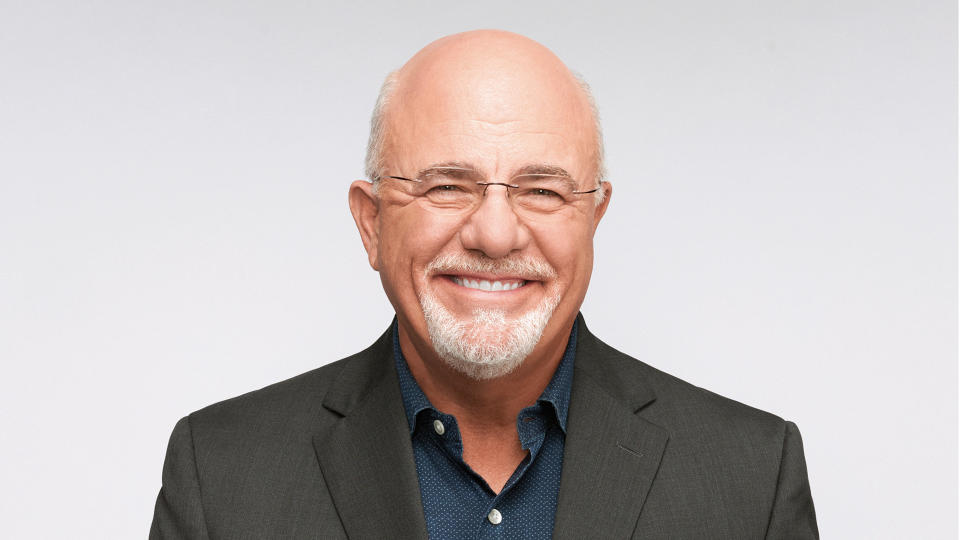John Csiszar
·4 min read
For many Americans, amassing a $1 million retirement nest egg is the ultimate dream. However, by and large, American investment accounts are falling short.
As of 2023, the average retiree had just $170,726 in retirement savings and 37% reported having no savings at all. Only roughly 8% to 10% of retirees had reached the lofty goal of at least $1 million in savings. But as Dave Ramsey points out, both in his Ramsey Channel broadcasts and in a recent tweet, becoming a millionaire by the time you retire is a lot simpler than you might imagine.
Up Next: This Is the One Type of Debt That ‘Terrifies’ Dave Ramsey
Trending Now: 6 Genius Things All Wealthy People Do With Their Money
Rather than hitting it big with speculative investments, the real key is consistent investment from as early an age as possible. If you do that, investing just $100 per month may be enough to get you to a seven-digit retirement account. How’s that possible? Read on to find out.
Sponsored: Protect Your Wealth With A Gold IRA. Take advantage of the timeless appeal of gold in a Gold IRA recommended by Sean Hannity.
Becoming a Millionaire by Investing $100 Per Month
According to Ramsey’s tweet, investing $100 per month for 40 years gives you an account value of $1,176,000. Ramsey’s assumptions include a 12% annual rate of return, which some critics have labeled as optimistic given that the long-term average annual return of the S&P 500 index is closer to 10%.
Explore Now: Dave Ramsey: 7 Vacation Splurges That Are a Waste of Money
But even if you were to knock Ramsey’s assumption down to a 10% annual return, $100 could still net you $1,048,246 in just five additional years, for a total of 45 years. Or, if you wanted to stick with the original 40-year timeline, investing just $159 per month would still get you over a million.
How Much Would I Have to Invest If I Got a Later Start?
If you’re already 30, 40, or even 50 years old, it doesn’t mean you’ve missed your chance to become a retirement millionaire. You’ll just have to put in more than $100 or $150 per month to get there. Compound interest works wonders the longer you have your money invested, so you’ll get the most bang for your buck by starting in your 20s.
But here’s how the math breaks down if you start investing later.
Starting at Age 30
If you start saving at age 30, you’re still ahead of the game compared with many Americans, and it still won’t take you too much effort to earn a seven-figure nest egg. If you plan to retire 35 years down the road at age 65 and still earn the same 10% average annual return, just $264 per month will be enough to do the trick.
Starting at Age 40
Starting to invest at age 40 means you’re 10-15 years behind the optimal time, and you’ll have to kick in more to reach a $1 million retirement account. But you can still get there by socking away about $750 per month.
Starting at Age 50
At age 50, things start to get a bit trickier.
With only 15 years to get to $1 million, you’ll have to make some sacrifices and budget adjustments to find the money to put toward your investments. You’ll need a whopping $2,425 monthly invested at a 10% return to hit that target value in just 15 years.
On the plus side, you’re likely in your peak earning years in your 50s, so this might be easier to do. Also, going from $0 to $1 million in just 15 years seems pretty unlikely, but it’s doable for many, especially if you’ve already paid off your home mortgage. But the cold hard fact is that you’ll need to save roughly 24x as much money as you would have if you started at age 20 instead.
The Bottom Line
It’s hard to accurately predict what your retirement savings will grow to, regardless of which variables you input. While 10% is the long-term average annual return of the stock market, for example, it rarely actually returns 10% in any given year.
More typically, it will gain 15% to 20% in boom years and drop 20% or more during bear markets. This variability of returns will affect your long-term outcome, even if you eventually net out a 10% average return.
But the lesson to be learned from this exercise is that the earlier you can start investing, the better off you’ll be in the long run simply due to the effects of compound interest.
More From GOBankingRates
Frugal People Love the 6 to 1 Grocery Shopping Method: Here's Why It Works
10 Best (and Worst) Places To Retire If You Have No Savings
The 6 Smartest Things to Do With Your Tax Refund
7 Ways Fraudsters Are Trying to Scam People in 2024
This article originally appeared on GOBankingRates.com: Dave Ramsey: Invest $100 a Month To Become a Millionaire in Retirement
